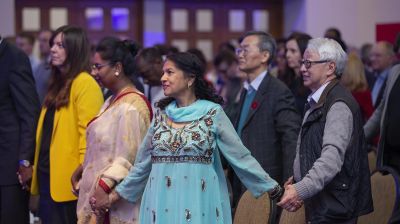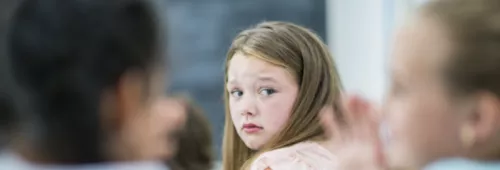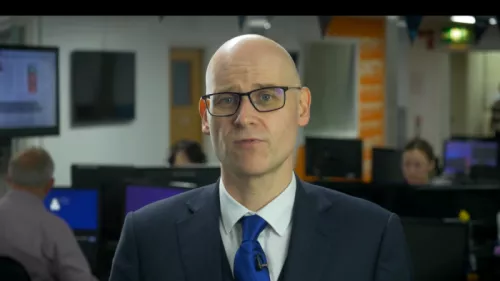Last month, the Government published a consultation entitled Children not in School, on possible legislation around home education and out-of-school education settings. Our Advocacy team at the Evangelical Alliance, have highlighted some concerns with the consultation and asks whether this is the best way to safeguard our children.
Read our guide to responding to parts of this consultation.
As well as proposals around home-education, the consultation proposes creating a legal obligation upon ‘proprietors’ of ‘settings’ to take, maintain and store registers of attendance at a ‘setting’ for state inspection upon request. Below we set out some of our concerns with this proposal, and how you might want to respond.
Why is this of interest to evangelicals?
Many evangelicals will not home-school their children. However, the proposals around ‘settings’ are much broader than home-schoolers. In fact, they could lead to the requirement for all ‘settings’ to take and maintain registers of all young people present, on the grounds that a home-educated child may be in attendance.
Evangelical churches and organisations provide many different settings or activities for young people, who will also attend other events and ministries alongside adults. These can be formal or informal, large or small. So, we have a stake in any debate around proposals which have an impact on this aspect of church life.
Just over three years ago, the Government was consulting on registering and inspecting out-of-school settings via Ofsted. This could have meant the regulation of Sunday schools and church services, on vaguely-defined grounds such as “undesirable teaching”. The Evangelical Alliance, alongside many other groups, MPs from all parties, and the majority of respondents to the consultation, objected to these proposals. They were disproportionate and unable to add significantly to the existing powers of statutory agencies (e.g. the police, local authorities). As a result, the Government eventually decided not to proceed with them.
What are our concerns with the consultation?
There is a danger that these new requirements on education settings could generate the same problems as previous proposed ones on out-of-school settings. Those 2015 proposals collapsed due to their broad focus, vague language and unintended outcomes. In this consultation, we believe that there are three questions about the contexts covered which the consultation document fails to answer:
- What is an educational setting?
- What are normal school hours?
- Who is a proprietor of a setting?
At their broadest definition, these terms could cover all sorts of Christian activities, far beyond the scope of children who are home-educated.
What is a setting?
Problems emerge when we ask what a ‘setting’ actually is, to determine which groups will be obliged to hold information on young people. The Department for Education’s (DfE) last published definition of an ‘out of school setting’ in February 2019 defined a setting as a place outside school /college and registered childminders that ‘provides tuition, training, instruction or activities’ without parental or carer’s supervision. This means that churches are educational settings, alongside museums, galleries, and many other contexts. Requiring all these to take and maintain registers for statutory inspection seems to go well beyond the consultation’s remit of children not in mainstream education. Indeed, even grandparents taking their home-schooled grandchildren to the park to study nature during ‘normal school hours’, could come within scope as a ‘proprietors’ of educational ‘setting’ under the above definition.
Should a museum have to register every child who visits? According to the Government’s own statistics, there were nearly 7.9 million under-16’s visiting England’s largest museums in 2017 – 2018. Similar proportions visited those in Scotland, Wales and Northern Ireland, along with many other smaller museums and attractions throughout the country.
On faith activities, what about a church prayer breakfast? Or a Bible-study in a friend’s house just after school? Until ‘setting’ is defined properly, there is nothing to stop these being within the scope of these proposals. In particular, requiring registers of children and young people who attend religious gatherings would be an unprecedented and chilling move more readily associated with international regimes that disregard human rights. Without a clear definition of ‘setting’, churches, faith-based organisations and groups in wider civil society are entitled to be concerned.
What about 'normal school hours'?
The consultation does not cover every educational setting, only those operating in ‘normal school hours’. On a plain reading, this does exempt Sunday services or late evening church meetings, for example, unlike proposals made in 2015. The problem is that ‘normal school hours’ are not defined anywhere in law, nor in the document itself, as they vary from school to school and area to area. As a result, an early-morning prayer meeting or an after-school Bible study may be outside the normal hours of one school and within those of another. Churches, charities and civil society are entitled to legal certainty on whether they would be covered by new law.
While the Government may have a legitimate interest in an educational setting that meets over a significant proportion of a school day, there will be many other contexts which may technically take place on the edge of ‘normal school hours’ – including Christian events, which are surely not its primary focus. The Government therefore needs a better limit on these proposals than “normal school hours” to avoid putting disproportionate burdens on civil society. Unfortunately, the DfE have failed to provide any definition of this critical term in the consultation.
And who would be a proprietor?
The DfE does not define nor explain who it envisages as a ‘proprietor’ of a ‘setting’ that operates ‘during normal school hours’. The term is usually associated with recognisable institutions like schools or youth clubs. However, these proposals could mean that grandparents who regularly undertake educational activities with their home-schooled grandchildren during ‘normal school hours’ could be classed as ‘proprietors’ of a ‘setting’ required to take and hold registers for state inspection in the face of statutory sanction.
Isn't this just good safeguarding?
Revelations of abuse in different contexts across our country have shocked and angered us all. For anyone involved in Christian work with children and young people, the Independent Inquiry into Child Sexual Abuse provides difficult material for careful reflection, and action where appropriate.
Nonetheless, our commitment to protecting children and young people is consistent with pointing out problematic and ineffective proposals. Imposing poorly defined obligations like those above on people and organisations which work with young people benefits nobody, as these create ambiguity about what is required and act as a disincentive for people to contribute towards the common good. Instead, the Government can do better, and should propose more targeted and proportionate measures.
What can I do?
With these problems in mind, we’d strongly encourage you to respond to the consultation, asking the Government to clarify what it wants, and not to bring forward these new proposals until they can define their scope in a more meaningful way. In particular, if you are involved in running children or youth activities, please do respond to the consultation citing your experience.
If you are concerned that these terms are left undefined, which will hinder your ability to respond to the consultation, you can write to your MP, to ask them to clarify these terms on your behalf. Read our guide to writing to your MP here.
And please continue to pray for MPs and civil servants as they examine and refine these proposals.

NOW CLOSED: Children not in school consultation guide
The government are consulting on new regulations for education outside of school settings Respond to the government's consultation


